Za sve opcije molim te da se prijaviš ili registriraš!
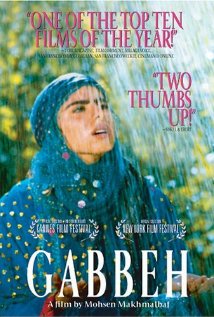
Godina:
1996Žanr:
drama, misterija, ljubavniTrajanje:
75 minRežija:
Mohsen MakhmalbafScenario:
Mohsen MakhmalbafGlavne uloge:
Shaghayeh Djodat > Gabbeh
Hossein Moharami > Old Man
Rogheih Moharami > Old Woman
Abbas Sayah > Uncle
Opis:
Poetična drama s elementima fantastike o mladoj Iranki iz nomadskog plemena i njezinoj zabranjenoj ljubavi sa strancem. Stariji bračni bar iz slikovitog seoceta u jugoistočnom Iranu, supruga (Roghayyeh Moharrami) i suprug (Hossein Moharrami), u potočiću čiste svoj prostirač s motivom djevojke i mladića na konju. Odjednom se na prostiraču ukaže prelijepa djevojka u odjeći kakvu nosi i starica. Djevojka imenom Gabbeh (Shaghayegh Jowdat) započne priču o svom životu u nomadskom plemenu i o svojoj nesretnoj ljubavi. Naime, Gabbeh je bila zaljubljena u naočitog mladića kojem njezin otac nije dozvoljavao da se njome oženi sve dok njezin stric (Abbas Sayyah) također ne pronađe suprugu. No, godine su prolazile bez stričeve ženidbe, pa je mladiću preostalo tek da prati Gabbeh i njezinu obitelj diljem zemlje"
An elderly couple go about their routine of cleaning their gabbeh (a intricately-designed rug), while bickering gently with each other. Magically, a young woman appears, helping the two clean the rug. This young woman belongs to the clan whose history is depicted in the design of the gabbeh, and the rug recounts the story of the courtship of the young woman by a stranger from the clan.
Summary written by Mike Myers {[email protected]}
Early one morning, an old couple emerge from a hut, she carrying a gabbeh, a small carpet, that she wove many years ago while waiting for her husband-to-be to carry her on horseback away from her family clan. As they wash the gabbeh, it comes to life, telling the old womans story of waiting for marriage. We join the clan with its sheep, the shearing and spinning and dyeing of wool, and the making of gabbehs. "All life is color," says her poetic, whimsical uncle; "all life is color," chant the women as one of them gives birth. With deep focus and landscapes, the film also tells the story of nomadic life.
Summary written by {[email protected]}
Mohsen Makhmalbafs Gabbeh is just the second Iranian film ever widely distributed in the U.S. (Jafar Panahis The White Balloon was the first). A gabbeh is an Iranian carpet produced by the nomadic Ghashghai tribe of southern Iran, comparable to the folk art of American quilts; in the films opening scenes, an elderly husband and wife travel to a nearby stream to wash their gabbeh, discussing the meaning behind the figures sewn upon it. The rug depicts a woman in blue and a man in red, together on a white horse; suddenly, the woman on the tapestry seems to come to life . her name too is Gabbeh, and the blue dress she wears is identical to the one worn by the old wife. She proceeds to tell her tragic story: it seems that despite her love for a mysterious stranger on horseback who follows her nomadic family wherever they travel, Gabbehs father refuses to allow her to marry until a series of stipulations have first been met. Makhmalbaf frames his episodic tale with interludes on the co
- Pogledajte slične sadržaje
- Komentari filma/serije
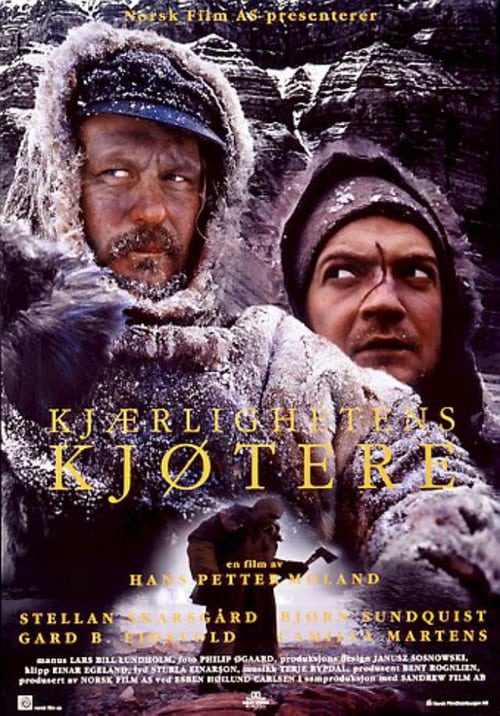
Kjærlighetens kjøtere (1995)
drama
Snažna psihološka drama/triler, pospješena vizuelnim prikazima sumornog Grenlanda.Larsen je mladi, bezbrižni pjesnik u Oslu, 20-ih godina prošlog vijeka. Nakon što njegova djevojka odbija da se...
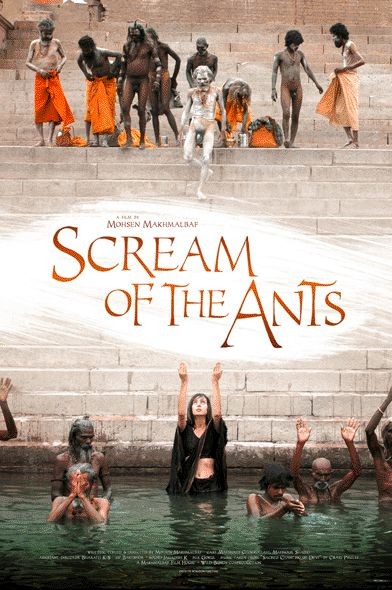
Faryad moorcheha (2006)
drama, avantura
A girl believing in God marries an atheist, who is consumed by doubt. They decide to spend their honeymoon in India. Searching the countryside for a guru called the "perfect man," who fobs them off...
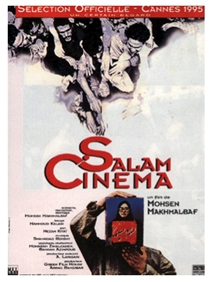
Salaam Cinema (1995)
drama, komedija, dokumentarni
Dokumentarna drama o glumačkoj audiciji za novi film redatelja Mohsena Makhmalbafa. Teheran, 1995. Iranski redatelj Mohsen Makhmalbaf priprema novi film u čast stogodišnjice kinematografije i u...
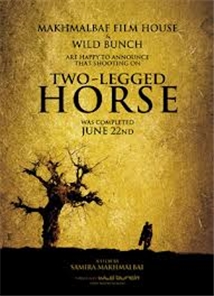
Asbe du-pa (2008)
drama
A father who has a young son with one leg and no other household members must go to India for some weeks. He hires another boy for a dollar a day to carry the son around on his back, to the school or...



Za komentarisanje morate biti prijavljeni!